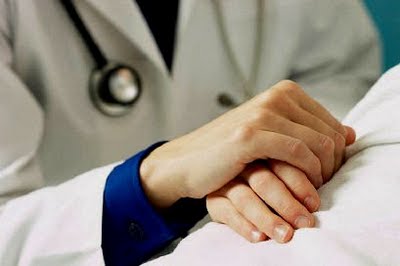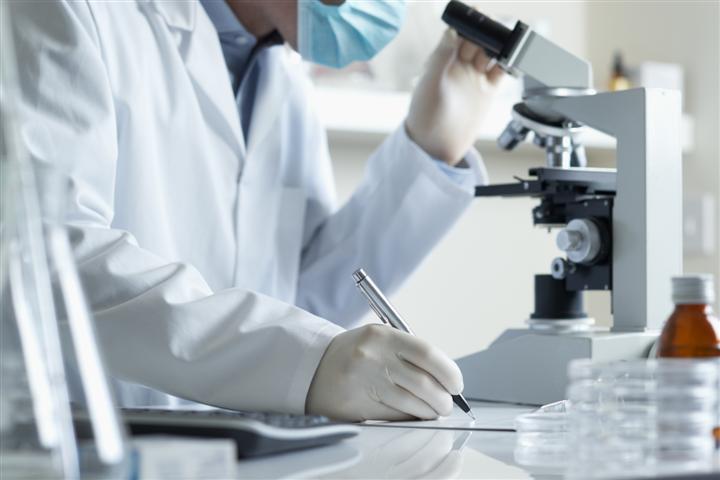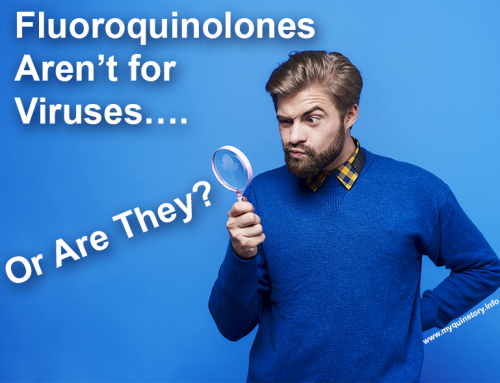Doctors as part of their training are supposed to learn to “improve the quality of life for humankind, to service the underserved and to advocate for our patients who need most.” From the perspective of the Fluoroquinolone (FQ) community how many can actually say that they have truly been served by a doctor who practices by those principals?
It is an unfortunate fact that, in many cases, those from the FQ community have experiences with doctors that are, putting it mildly, less than ideal. Often times, the doctors de ny, dismiss or downplay their patient’s testimony, especially when the patient’s experience falls outside the ebb and flow of the commonplace and the patient walks away feeling further victimized by the system. Although not impossible to find, one would have to agree that to find an altruistic doctor who is truly interested in the patient’s testimony is rare indeed despite the fact that altruism is supposed to be upheld as a goal and a responsibility for all medical doctors since Hippocratic times.
ny, dismiss or downplay their patient’s testimony, especially when the patient’s experience falls outside the ebb and flow of the commonplace and the patient walks away feeling further victimized by the system. Although not impossible to find, one would have to agree that to find an altruistic doctor who is truly interested in the patient’s testimony is rare indeed despite the fact that altruism is supposed to be upheld as a goal and a responsibility for all medical doctors since Hippocratic times.
Fortunately we do have a few doctors in our community that chose to give our testimonies a public voice. Several years ago we started reaching out to doctors and academic researchers. At that time, three academic researchers answered our call. They were Dr. Charles Bennett, Dr. Beatrice Golomb and Dr. Mark Noble.
They have been willing to go against entrenched ideas, willing to put professional reputations on the line, and willing to face tremendous pressure from peers, associates, the FDA and drug companies to stand in defense of what they know to be the truth.
Many times by choosing the path of listening to our testimonies, presenting the facts in publications and conferences, and pursuing answers by researching fluoroquinolone toxicity, puts them at odds with very powerful entities in a high stakes game, which many academic medical professionals are not willing to participate in.
and conferences, and pursuing answers by researching fluoroquinolone toxicity, puts them at odds with very powerful entities in a high stakes game, which many academic medical professionals are not willing to participate in.
When I first entered the FQ community many years ago I was quite naïve to the ways of our current medical system. And now, after many years of knowing a handful of academic researchers, I realize the amount of pressure and peril they face in their professional and personal lives in the pursuit of our justice. If I were in their shoes, I do not know if I could stand up to the scrutiny.
Recently when Dr. Charles Bennett was interviewed by J. Ryne Danielson of the public relations office at the Medical University of South Carolina, he revealed the true nature of the battle they face and we often do not see.
Bennett, who heads up the Southern Network on Adverse Reactions or SONAR, oversees one of largest and most successful pharmaceutical watchdog groups in the country. According to Bennett “SONAR listens to people who have been harmed by an adverse drug reaction,” he said. “We give patients a voice.”
But doing so comes with a price. Bennett goes on to say that “You can’t do what I do and think the drug companies don’t notice you.” “Wyeth, Schering-Plough, Eli Lilly, Novartis, Roche, Genentech—you can’t find a major drug company that SONAR hasn’t found an issue with.”
 With the media scrutiny and the Citizen Petitions filed over the last year putting the FQ’s square in the crosshairs of public attention, you can bet that Bennett has gotten the attention of some very powerful entities; entities that are going to push back in an effort to silence or undermine our message.
With the media scrutiny and the Citizen Petitions filed over the last year putting the FQ’s square in the crosshairs of public attention, you can bet that Bennett has gotten the attention of some very powerful entities; entities that are going to push back in an effort to silence or undermine our message.
Bennett said many things can happen when one finds him or herself on the wrong end of a powerful corporation: “Sometimes you find that you’re not invited to conferences you used to be invited to. You’re kicked off committees. Sometimes they send private investigators after you.” “They’ve looked at everything I’ve ever done in my life,” Bennett said.
We, in the FQ community, must not take these truly rare academic researchers for granted, for they give us, who have been disenfranchised by the medical community, a legitimate voice.
Bennett concludes, “In my life,” he said, “I always wanted to be in a position to make a difference and to save lives through public health and public policy initiatives. I think that’s what I am doing. SONAR has saved tens of thousands of lives and billions of dollars. That’s a good day’s work.”
Let’s commit to support Dr. Bennett, the team at SONAR, and all the other academic researchers who put their credentials on the line to make sure our testimonies are not only heard, but for lending scientific credibility to what we know to be reality.






I was given Levaquin in 2012. My regular Dr was away, the NP thought I may have had pneumonia. I didn’t. But I did have a bad reaction to the levaquin. When I went to see my regular Dr there was no sympathy. It was my fault for seeing the NP. I’ve been wondering what happened to the do no harm part of medicine. The Dr.s all know that this happens. They don’t warn you or you would never take the stuff. Isn’t that a form of assault?